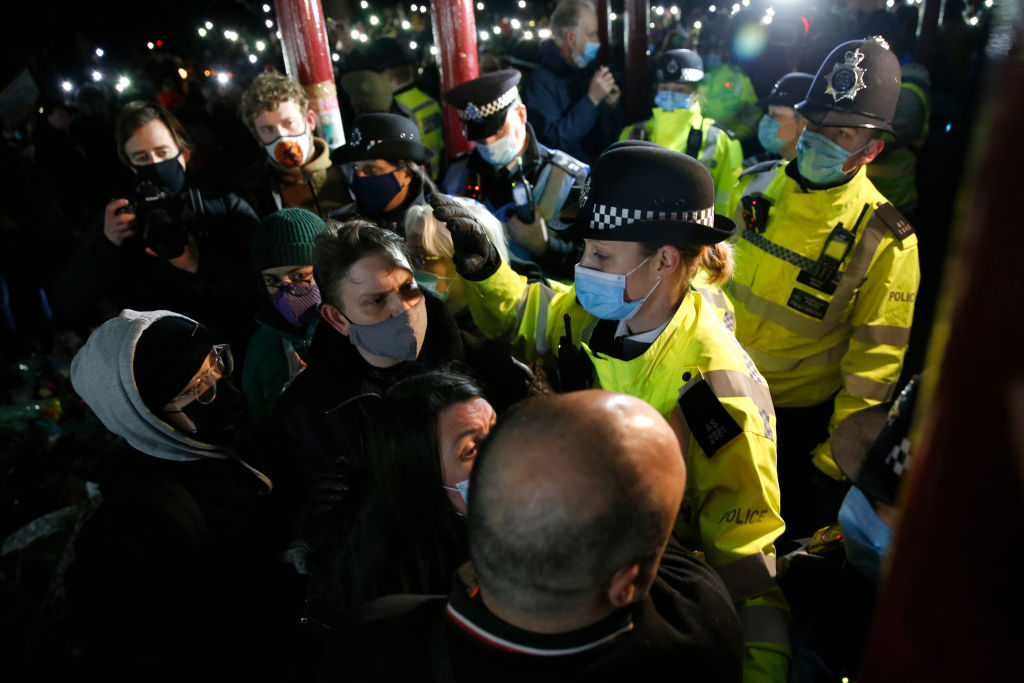Late last night, politicians started scrambling to express their concern about the policing of a vigil held on Clapham Common in the memory of Sarah Everard. After images of police officers arresting women on the ground emerged, Home Secretary Priti Patel said she found some of the footage ‘upsetting’ and would be asking the Metropolitan Police for a ‘full report’. Labour leader Sir Keir Starmer called the scenes ‘disturbing’ and said, ‘this was not the way to police this protest’.
The political implications of last night’s policing decisions are going to be very difficult for both Patel and Starmer. This week, the Police, Crime and Sentencing Bill has its second reading in the Commons. This legislation was already causing concern among different groups of MPs and campaigners because of some of its proposals on protests. It will give the police even greater powers than they already have, including the ability to restrict a protest on the grounds that its noise is causing disruption to those working and living nearby.
Even before last night’s vigil (organised in memory of Sarah Everard, rather than as a protest, and officially cancelled by the organisers after Scotland Yard refused to engage with the ‘Covid-secure’ proposals from the organisers), MPs were expressing worries that this legislation in its current form is too draconian. One Conservative MP I spoke to last week said it made him feel ‘ashamed’ to be in his party, which shouldn’t see ending the right to protest as a virtue. He may have been in a small group in his party before this weekend – but many of his colleagues will now feel they have to express concerns too.
It is even more fraught for Starmer, who will come under far greater pressure from his own party to vote against the legislation. One problem is that the Bill is not just about protest, and Labour would be opposing many things that it wants to support. An abstention, though, would spark yet another row in the party about whether Starmer is really prepared to stand up for Labour principles and take the fight to the Tories.
Of course, the police are arguing that they were merely enforcing legislation aimed at preventing the spread of Covid, and that creates a third dynamic. The laws restricting freedom in the pandemic have been very poorly scrutinised, and it will now not just be the lockdown sceptics in the Tory Covid Recovery Group who are demanding a rethink.
Last night’s vigil was in memory of a woman killed on her way home. But it is clear that Sarah Everard’s death has caused ripples that go far beyond the terrible issues the case itself raises. It will likely lead to intense political infighting – and politicians will need to remember that at the centre of all this is a grieving family who may find such ripples deeply traumatising.







Comments